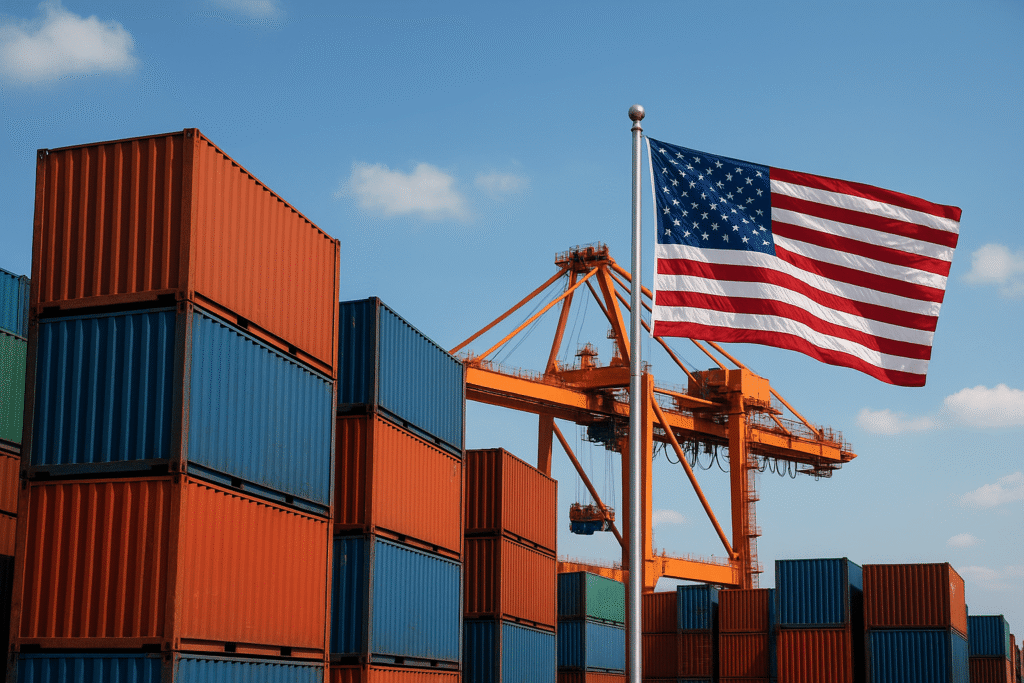The latest India US tariff news is making headlines across global markets. Former U.S. President Donald Trump has imposed a steep 50% tariff on Indian goods, igniting discussions about trade, retaliation, and the billions of dollars at stake. While Trump has often labeled India the “Tariff King” and even called its economy “dead,” the reality tells a different story India is the world’s fourth-largest economy and on track to become the third.

For decades, American companies in India have thrived, from tech and automobiles to banking and consumer goods. But now, the threat of India trade retaliation could disrupt this lucrative relationship and reshape the landscape of the India US economic relations.
A Strong Partnership Under Pressure
The India US tariff news reflects growing strain in a relationship that has long been beneficial to both nations. In the financial year 2024–25, bilateral trade between India and the U.S. reached a massive $131.84 billion. India exported $86.51 billion worth of goods to the U.S., including pharmaceuticals, technology, and gems. In return, America exported $45.33 billion worth of products such as petroleum, aircraft parts, and coal to India.
Both economies rely on each other. American giants like Apple, Amazon, McDonald’s, Coca-Cola, Microsoft, and Ford have deep investments in India, generating billions in annual revenue. Many of the top 20 IT companies in India are U.S.-owned, underscoring the importance of the partnership.
But with US tariffs on India now at unprecedented levels, India faces the question should it strike back? And if so, at what cost to both sides?
What’s at Stake for American Companies in India
If India launches trade retaliation, the impact will be felt immediately by American companies in India. These corporations enjoy one of the world’s fastest-growing consumer markets, where middle-class spending power is rising every year.
Think about it McDonald’s and KFC have millions of customers here; Amazon dominates e-commerce; Apple is expanding manufacturing and retail presence; and Microsoft’s technology powers countless Indian businesses. If India increases tariffs or introduces regulatory hurdles, these companies could face higher costs, reduced profits, and slower expansion.
The India US trade war scenario would not just hurt corporate earnings it could also impact jobs, investment plans, and long-term trust between the two countries.
The Political Heat: Trump’s Tariff Policy
Trump’s India US tariff news move is part of his broader “America First” trade stance. By imposing US tariffs on India, he aims to reduce America’s trade deficit and protect domestic industries. However, this approach overlooks how deeply the two economies are intertwined.
Indian lawmakers and trade experts argue that such steep tariffs are unfair and risk damaging decades of progress in India US economic relations. Ashok Kumar Mittal, an MP from the Aam Aadmi Party, publicly challenged Trump’s claim that India has a “dead economy.” He reminded the U.S. that American companies earn over $80 billion annually from India in sectors like education, finance, and technology.
If India chooses trade retaliation, Trump’s India tariff policy could trigger a domino effect leading to higher prices for consumers in both nations and a chill in bilateral investment.
Why This Is More Than Just Tariffs
The India US tariff news is about more than taxes on goods it’s about influence, economic leverage, and the future of one of the world’s most important trade partnerships.
India is no longer just a buyer of American products; it’s a major hub for innovation, technology, and manufacturing. U.S. tech giants rely on India for software development, customer service, and R&D. In return, Indian businesses benefit from American capital, technology transfer, and global market access.
If this relationship turns into an India US trade war, the shockwaves will be felt from Silicon Valley to Mumbai.
